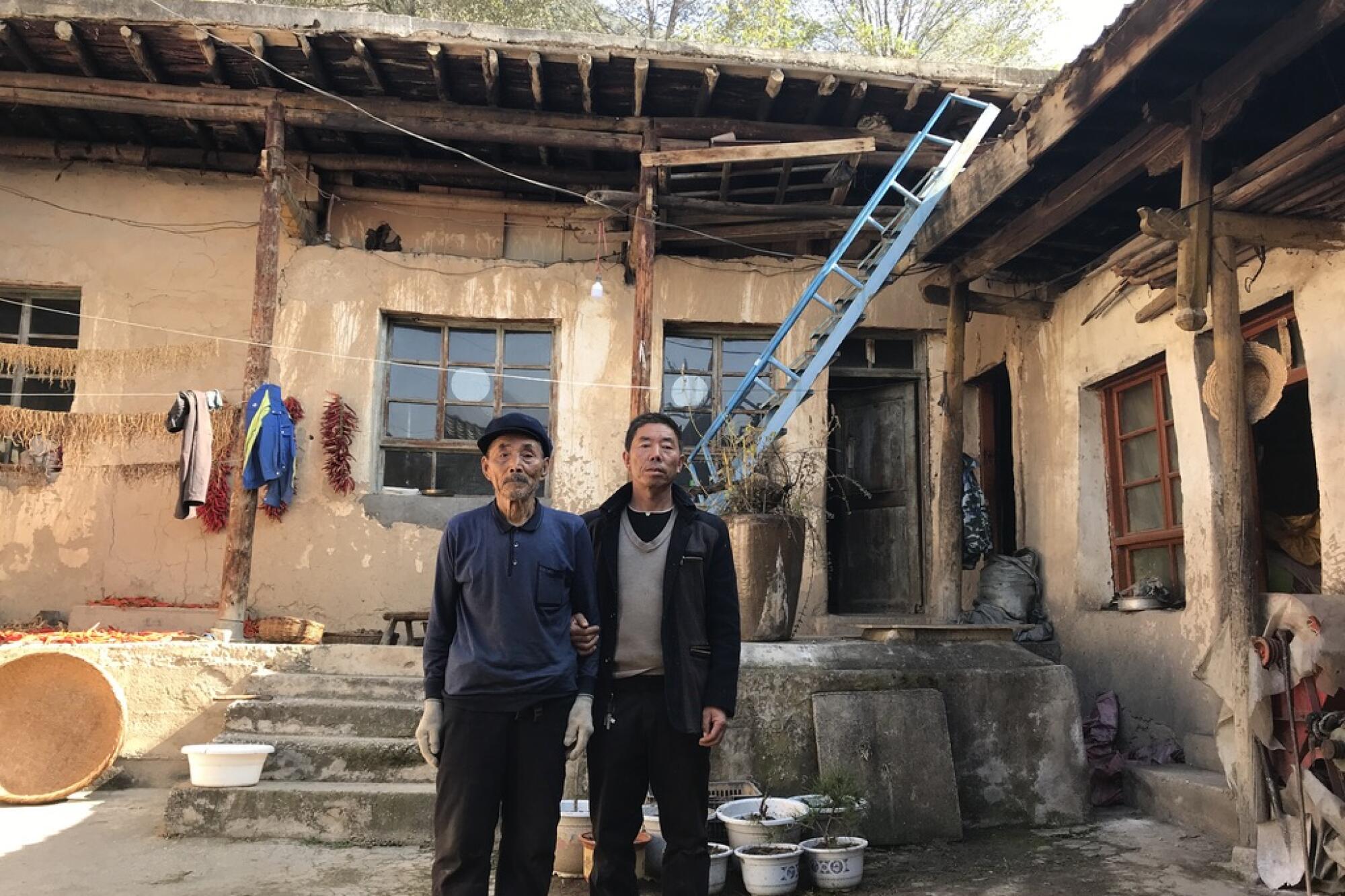
LIANGHEKOU, China — Standing near a mountaintop, overlooking two empty villages of mud and straw homes below, Communist Party secretary Cai Hongmin beamed: “We plucked out the people’s roots of poverty all at once.”
The villagers had been moved in 2018 to new homes an hour’s drive away, he said, where they enjoyed running water, electricity, closer schools and better roads. Many homes here in Lianghekou, a cluster of villages and vegetable patches perched amid the dry mountains of China’s Gansu province, would be demolished, others restored as part of a tourist attraction and mountaintop resort.
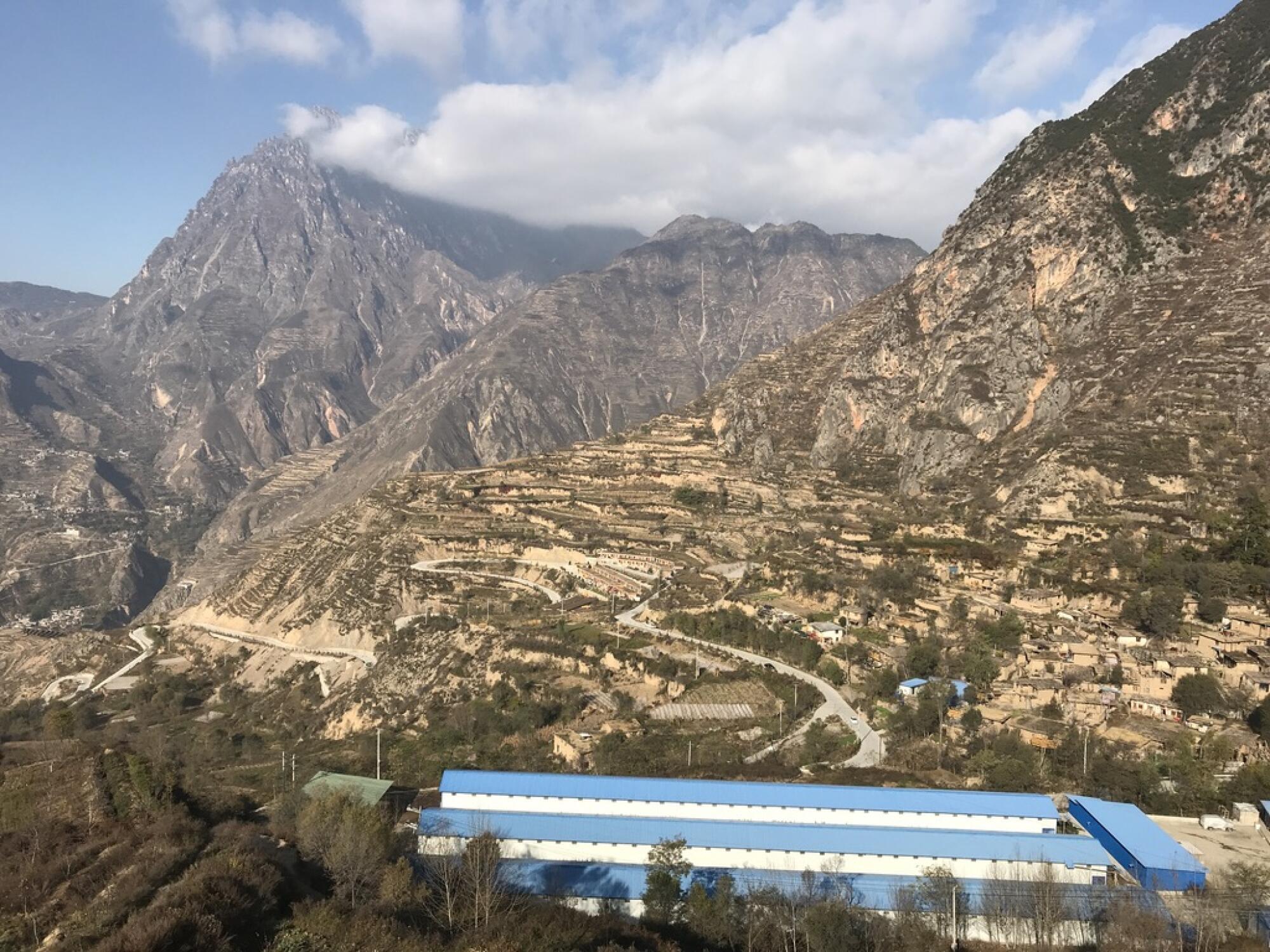
The resettlement project is crucial in meeting Chinese leader Xi Jinping’s ambitious nationwide campaign to eradicate poverty. Despite the COVID-19 pandemic, Xi has ordered that every Chinese citizen earning no more than about $600 a year be lifted out of extreme poverty before 2021.
The party has spent tens of billions of dollars — $20.6 billion in 2020 alone, topping an increase of $3 billion in anti-poverty spending each year over the last five years — and dispatched more than 775,000 officials to survey rural households that will be raised out of poverty before next year’s 100th anniversary of the Chinese Communist Party’s founding.
The government announced this week that it had beaten its deadline by one month. It is expected to soon declare that the number of people living below the extreme poverty line has dropped from 98.99 million in 2012 to zero. State media heralded this as a “great miracle in human history,” and has begun promoting China’s poverty eradication approach to developing countries.
It is a stunning achievement that has improved many lives, especially through new roads, water systems, and access to school and healthcare in remote communities. But like other policies in China, the program is a sweeping, top-down effort that is vulnerable to corruption and often more focused on meeting a target and deadline than on the specific needs of those it is seeking to help.
Even in model areas like Lianghekou, shown to a Times reporter on a government-organized trip, villagers were frustrated about forced relocations. They struggled with finding new jobs to afford higher costs of living in their new homes. They worried that the land they vacated would be repurposed to benefit government officials, private investors and developers more than the poor.
Lianghekou’s villagers had leased their land to a hotel developer from Chongqing that would share its dividends with them, said Cai, the party secretary. The hotel could then employ some of the villagers as janitors, construction workers or other service staff.
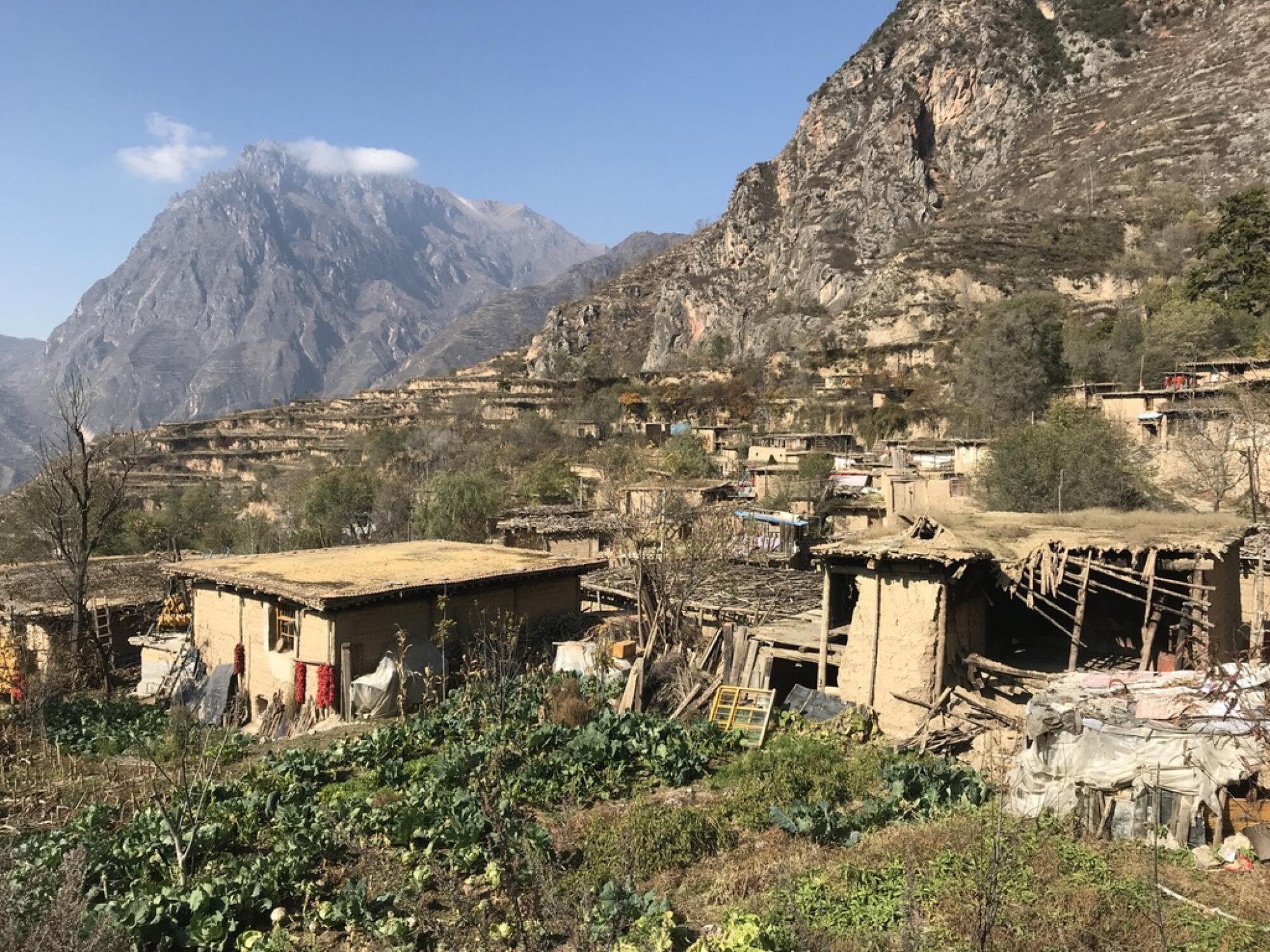
“We are fulfilling many dreams,” said Cai, brimming with public relations aplomb. “The China dream, the poverty alleviation dream, the dream of happiness for hotel guests, the villagers’ dream of multichannel incomes.”
Not everyone shared that enthusiasm. Liu Zhu’an, 39, leaned over a balcony near the hotel construction site watching the party officials. He was relocated but had returned to Lianghekou to earn $19 a day helping build the hotel. Officials had instructed him and other workers to not speak to journalists, he said.
“What could we do even if we didn’t want to move? Do we have any choice?” he said. “My life is the same. I was a day laborer before, and I’m a day laborer now.”
Yan Mingxue, a party cadre who’d come along to monitor the visit by officials and journalists, lingered nearby until Liu stopped speaking. The villagers were happy because they’d turned “from farmers to shareholders,” he said. They’d been promised at least 8% of the new development’s dividends to be split among them based on how much land they had given up. They were thankful the government had moved them and improved their lives, he said.
But not all the villagers had gone.
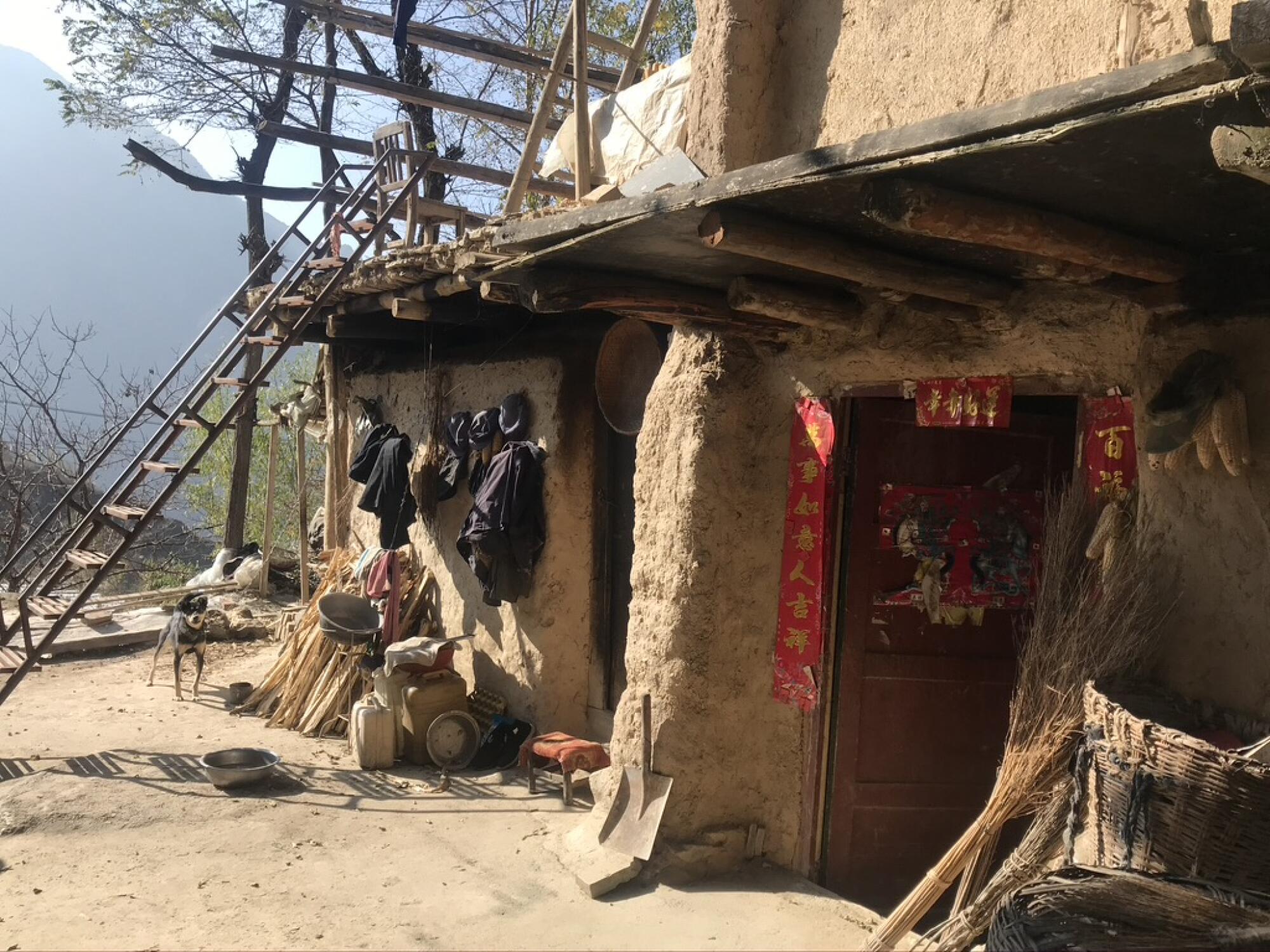
Halfway down the mountain, an 88-year-old man chopped wood in front of his home. He wore dusty white gloves and a flat blue hat. Ramshackle homes stood abandoned around him. An empty birdcage swung from a tree branch. A “double happiness” sticker was fading on a window overlooking a cabbage patch overgrown with weeds.
Four families were left in his village, said Yang Qinglai, putting aside his ax. Some wanted to keep farming their fields. Others were unable to adjust to urban life. Yang’s wife, Yuan Juxiu, 84, lay ill inside their home on a hard bed in a room with sheets of plastic covering the walls.
Their son Yang Jiacun, 52, had returned to the village after a few months working as a migrant laborer in neighboring Xinjiang Uighur Autonomous Region where many from Gansu worked in construction for $15 to $22 a day. That was more than they could make at home. The local government encouraged them to settle in Xinjiang, saying the land and resources there were abundant.
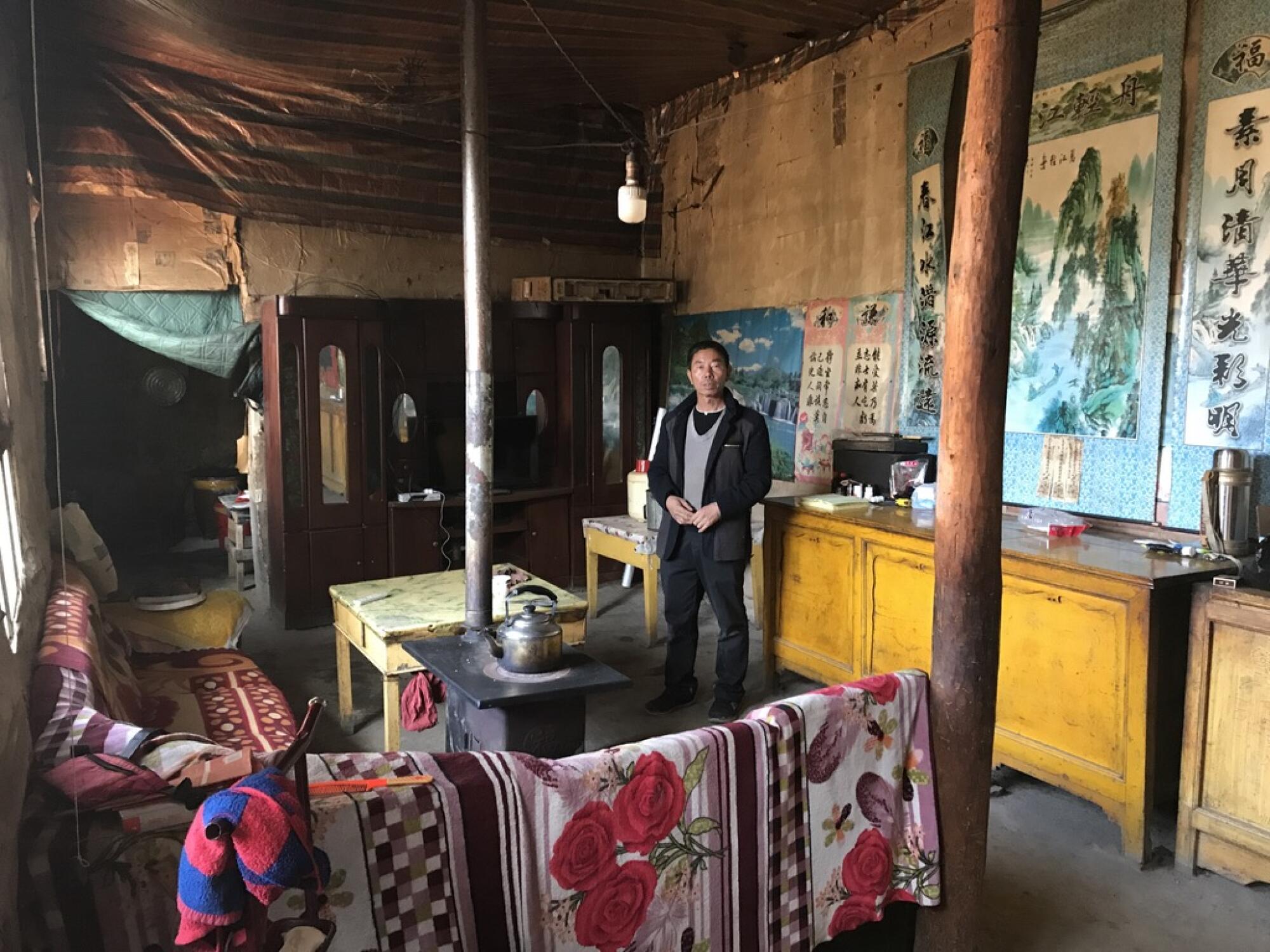
Yang’s family had considered such a move 10 years ago, when the resettlement policies first began. They’d visited to see new land the government had promised for a subsidized price. They decided it was too much of a change, but upon return, they found that all but two of the family’s hukous, the household registrations that tie every Chinese citizen to a city or rural area, had been transferred to Xinjiang. That meant they were now classified as Xinjiang residents and would be able to access only government social programs there.
Only Yang Jiacun and his son were still registered in Gansu. When the poverty alleviation relocation began, only they received new accommodations in a settlement next to the highway about 35 miles away. His parents, wife and daughter were not assigned a new home, and had nowhere to go.
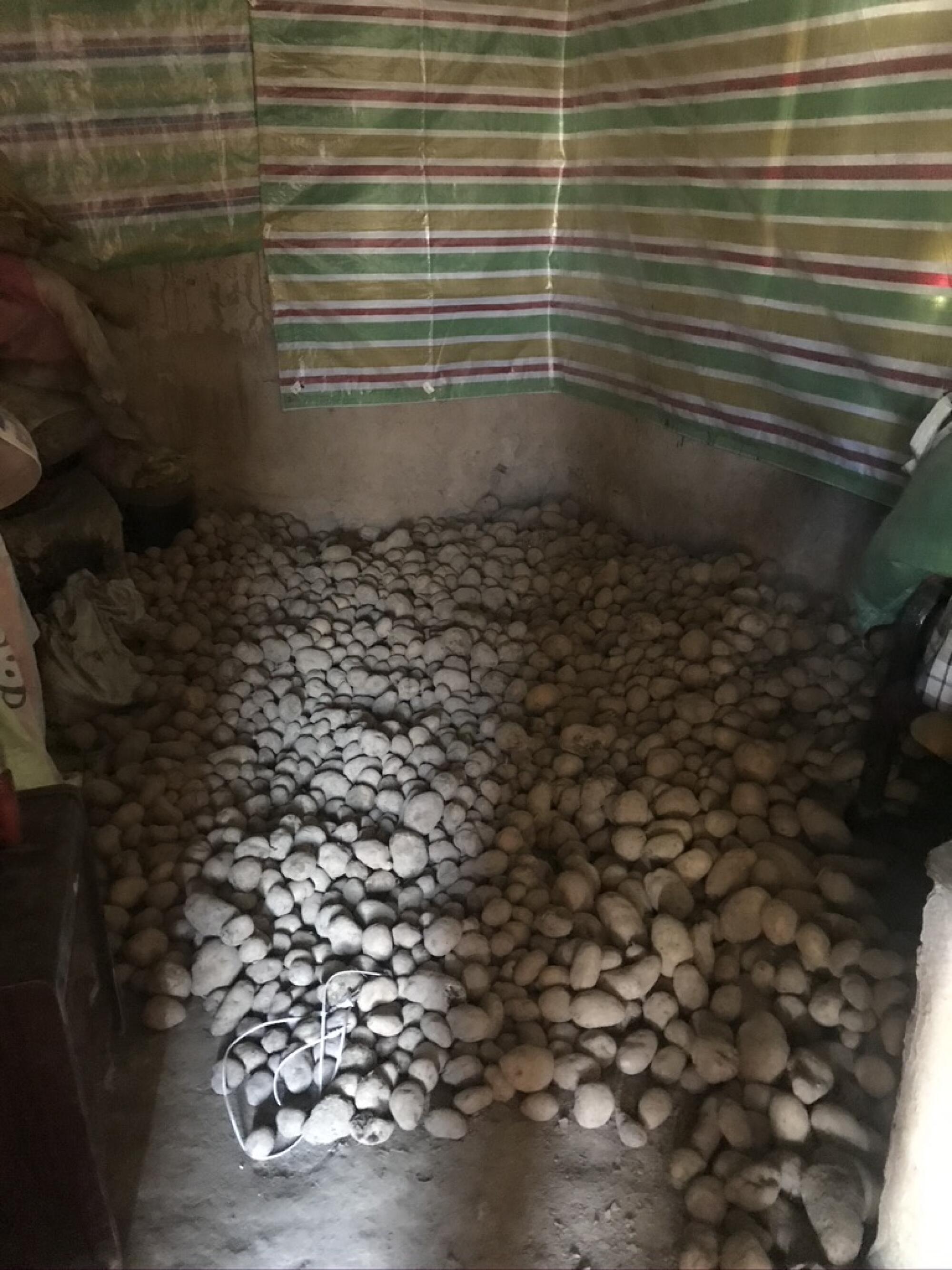
“My mother is so sick, she can’t move. How can we move to Xinjiang now?” Yang said. He was unsuccessful in trying to get their hukou changed back to Lianghekou. Now the authorities wanted to demolish their house by the end of the year but would not provide another place for his parents to live.
Stuck in a bureaucratic dead end, the Yangs had stayed in the abandoned village through the pandemic, surviving on a stockpile of potatoes. They had no running water and drank from a tank that collected rain.
Their conditions seemed far worse than those of villagers relocated to government high-rises with new plumbing, electric stoves and tiled floors in the settlement beside the highway. But villagers were struggling there, too.
“Of course, the house is good. But if we can’t find work, it’ll be difficult here,” said one relocated resident who gave only his surname, Yuan. He was making about $15 a day on odd construction jobs, which were fewer because of the pandemic. He had to pay electricity and maintenance fees for his new home, and no longer had the savings benefit of eating food grown on his own land.
“We wander the country. If there’s work, it’s fine,” Yuan said. “But if not, this is no good.”
Seventy-three percent of residents living in the relocation compound worked as migrant laborers, according to official statistics. Thirteen percent were self-employed, and 14% had government positions like public sanitation.
Wang Aiqing, 46, chatted with a noodle seller downstairs. He shrugged when asked what he thought of the new apartments. “They destroyed our homes. How could we not move?” he said. His apartment was cold. Electricity was expensive. He’d have rather been back in front of a fire in his old home on the mountain.
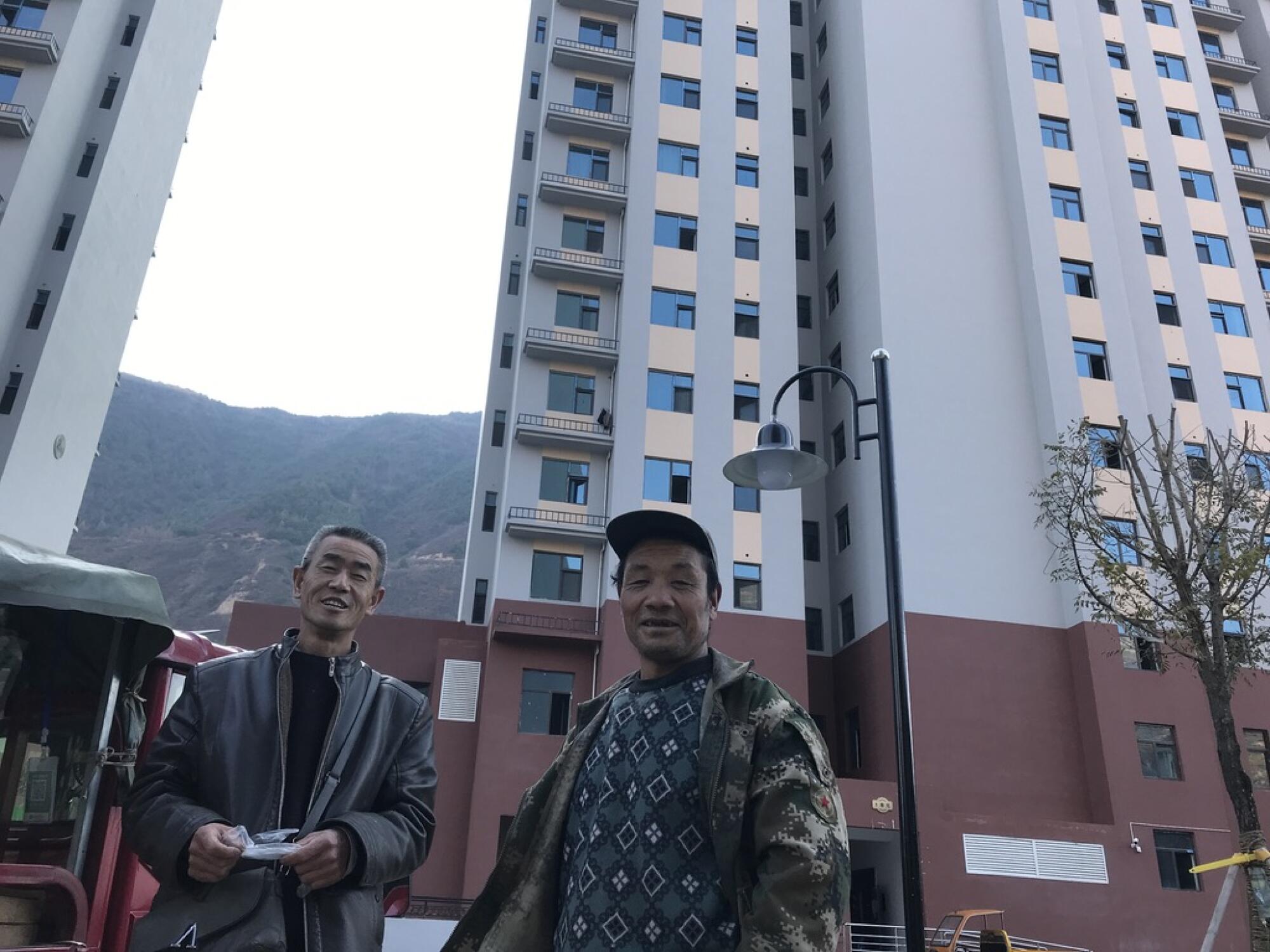
Another resident, who asked to not use his name for protection, said many had been forced to leave their village. Some villagers had been beaten by underlings of the tourism company, which, he said, was conspiring with the local government.
He could not prove his claims, saying police had ordered villagers who’d recorded videos of the beatings to delete them. Many villagers who’d signed land transfer papers now feared that they had lost their fields at an unfair price, he said.
Liu Zaiyi, a Longnan city poverty alleviation official, denied that the relocation was forced. “They all agreed and signed their names,” he said. Villagers were often dishonest and ungrateful, he said, making up stories to get more benefits.
“These people are totally rotten,” he said. “They pretend to be sick or say they have no work, because they know children who cry receive more milk.”
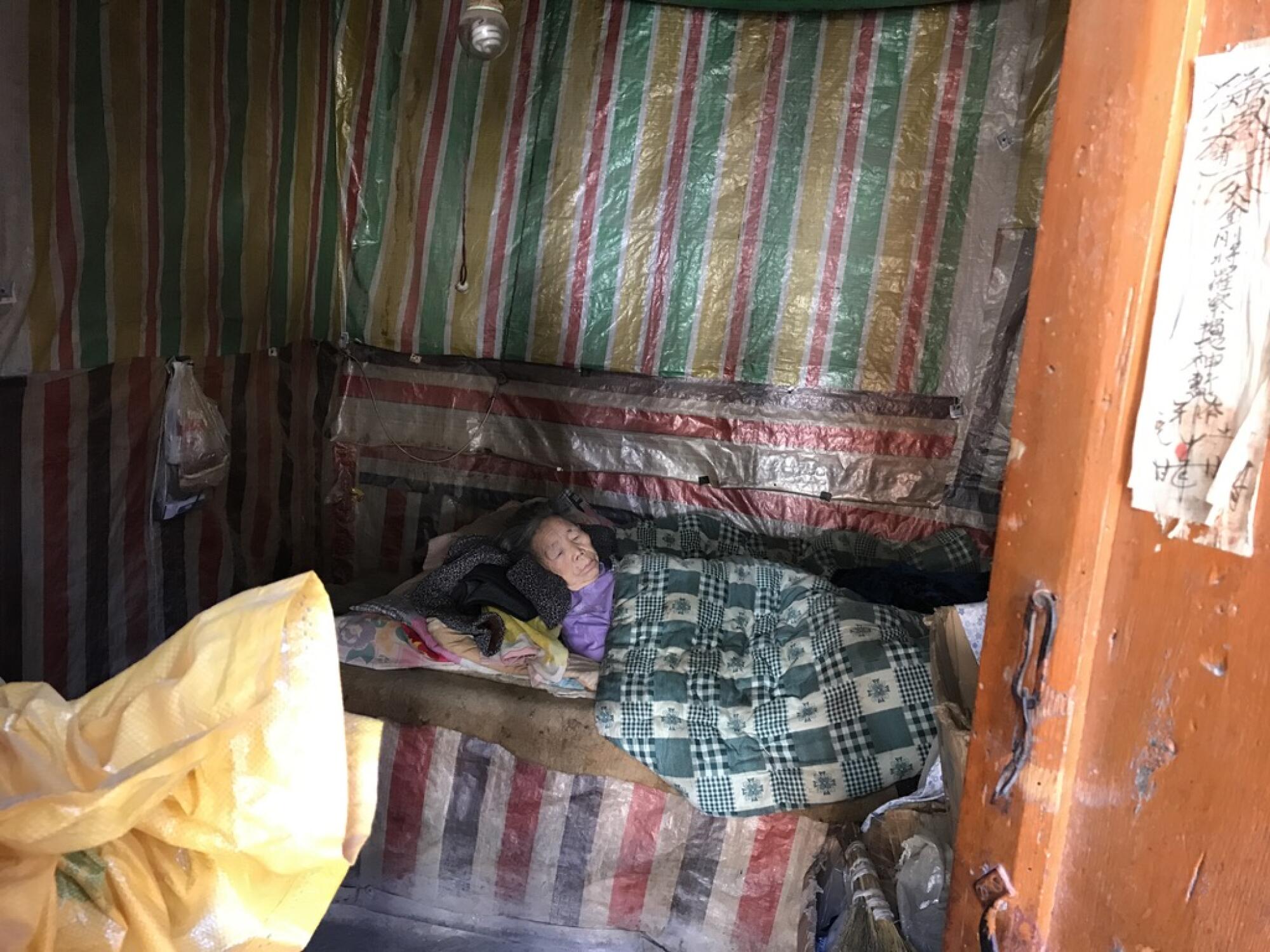
Complaints come from all sides of the anti-poverty project. Forced relocation is a common grievance. But so is unfair distribution of new homes and government funds. Sometimes that is a matter of perception: Villagers who are just above the poverty line but still struggling see their neighbors receiving new apartments and subsidies while they are left behind, and accuse officials of playing favorites.
In other cases, corruption is real: The Communist Party’s disciplinary body has found tens of thousands of officials received bribes in exchange for development contracts, embezzling anti-poverty funds for personal use, taking money for fabricated projects, or giving preferential anti-poverty benefits to friends and family.
Poverty — and perhaps a more pressing problem, inequality — will remain a challenge post-2020. As of 2018, 17% of China’s population (237.2 million people) still lived under the World Bank’s poverty line for upper-middle-income countries. Many of those lifted out of poverty in recent years are dependent on government help and in danger of falling back below the line after the campaign is declared a success.
But this year, Xi’s deadline is what matters.
Cai, the Lianghekou party secretary, was intent on emptying the village to make way for a resort before 2021. Asked about the Yangs’ hukou problem, Cai said they were not his responsibility. “If they don’t have the hukou, they are not our people. If they want to change their hukou, that’s another department’s job.”
Back in the village, Yang Jiacun stood with his father in their courtyard. “My parents were born and raised on this piece of earth. This is our home,” he said. His family had one wish, he said: “Don’t demolish this house. Let us continue living in it.”
It is a wish unlikely to be fulfilled.
More to Read
Sign up for Essential California
The most important California stories and recommendations in your inbox every morning.
You may occasionally receive promotional content from the Los Angeles Times.











